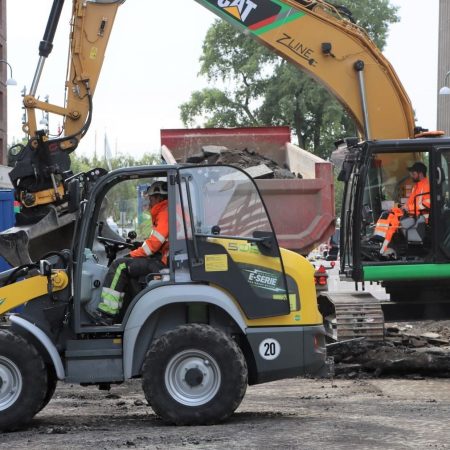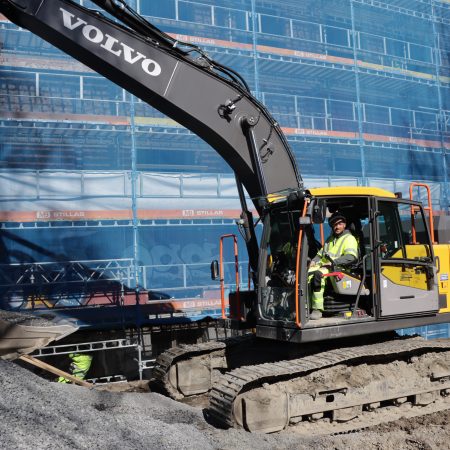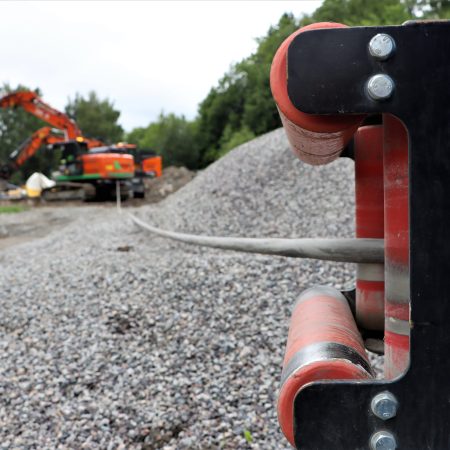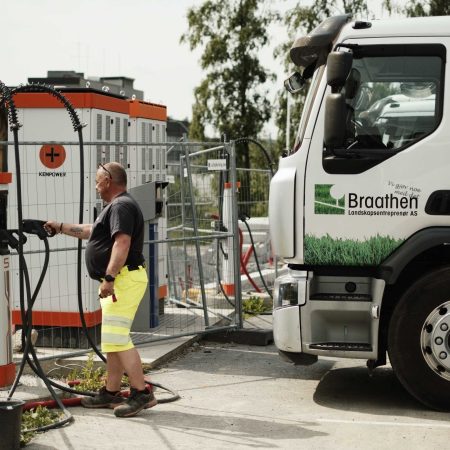Size: medium
Type: image
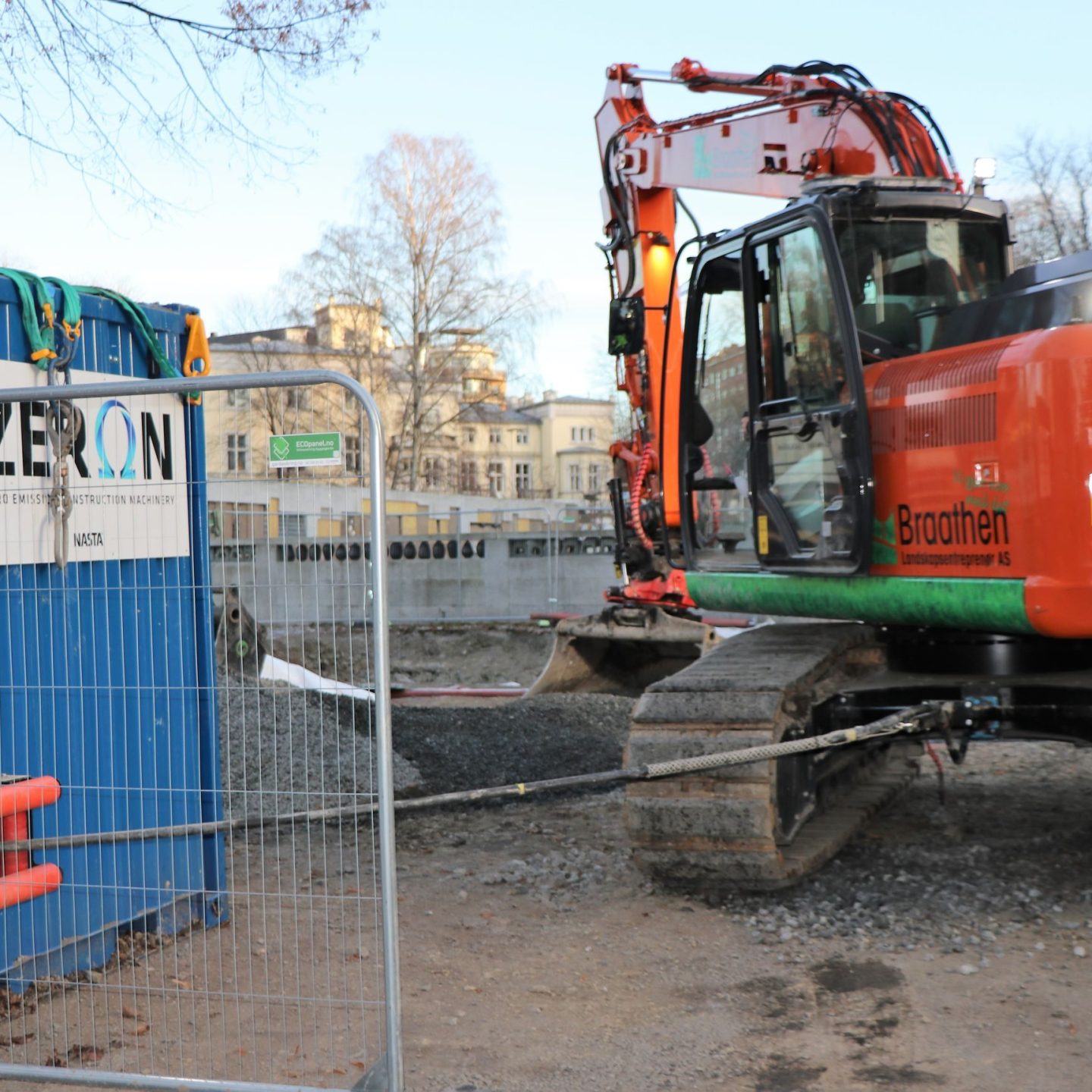
The City of Oslo has adopted a mission to make all construction activities and heavy-duty transport zero-emission or to use exclusively sustainable, renewable fuels in its Climate Strategy. This means that all transportation will be running on electricity, hydrogen or biofuel (primarily biogas) by 2030. Trends in the market indicate that machines and vehicles will rely predominantly on electricity as fuel. Even though Oslo is the world’s most advanced city on the electrification of construction sites and heavy-duty vehicles, the city is still in an early transitional phase. Both structural and technical solutions need developing in order to secure 100 per cent emission-free activity by 2030.
One of the most important prerequisites for the transformation of Oslo’s machine and vehicle fleet is sufficient, accessible charging infrastructure. This can include both public fast chargers and depot chargers for heavy-duty vehicles, but also the necessary infrastructure for charging of electrical machines and equipment on each construction sites.
Hafslund Rådgivning has prepared a report on behalf of the Climate Agency. The report aims to predict future construction activity in Oslo, along with the electricity and charging infrastructure needs in order to enable a gradual shift towards zero-emission towards 2030. An assessment of the power demand is also included in the report. This is all to serve as a white paper for the City of Oslo’s work with evaluating measures for early development energy supply infrastructure catered towards heavy-duty transport and the construction sector.
